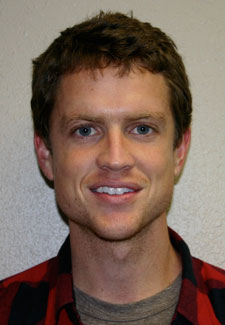The Hogg Foundation’s work in the legislative arena is very much a team effort, one that couldn’t succeed without the work of our Policy Fellows. In his own words, Peter tells us about his experience at Hogg and at the Capitol.
- Tell us a bit more about your background. How did you decide to get into mental health policy work? I worked and volunteered with organizations that provide free civil legal services for low-income communities when I was in school. Mental health came up in lots of different contexts – for example, in housing and disability cases – so I knew there was a need for people with experience in mental health. Working at the policy level has given me the opportunity to develop a more comprehensive understanding of how mental health issues impact different systems in Texas and ultimately the people receiving services in those systems.
- The foundation has had its eye on a number of bills that have ramifications for mental health in Texas. Can you give an example of an especially positive mental health-related development from the legislative session? Parents of children with serious emotional disturbances who’ve exhausted their private resources seeking treatment are sometimes forced to relinquish custody of their child to the state in order to obtain critical behavioral health services. On top of losing rights to their child, these parents can be placed on a list indicating that they’ve refused to accept parental responsibility. Once they’re on this list, they can be barred from certain jobs. Senate Bill 44 by Sen. Zaffirini and Rep. Burkett attempts to address this situation in a way that respects parental rights and promotes access to necessary care.
- What have you learned from working with legislators and their staffs at the Capitol? The importance of relationships and early involvement in policy discussions. During the first couple weeks of session, Meagan and I met with staff in offices that were interested in filing mental health-related legislation. We were able to be a resource as the session progressed, and we learned from the staff’s infinite wisdom about the parliamentary process. They were definitely symbiotic relationships.
- Personally, what do you feel that you contributed to the work done by legislators and their staffs? It’s really hard to tie any piece of legislation or policy change to an individual. I’m proud to be part of a group of advocates and a legislative session as a whole that will positively impact people with mental health conditions in Texas.
- The Capitol can be a physical and emotional grind. Did you find that to be the case, and if so, what helps you deal with it? For me, the session was very stop-and-go. During the “go” weeks I would treat myself to the finest in Capitol Grill cuisine. Also, working with people that are fun to be around always makes it easier.
- What has been your favorite part of the fellowship? Getting to know folks here at the Hogg Foundation, as well as people working with advocacy organizations in Austin and around the state. Everyone has been really welcoming and kind. I feel very lucky to be part of such a smart and dedicated community, and I’m looking forward to continuing these relationships over the coming years.
- In what ways have you grown since you first started at the Hogg Foundation? When I started with the Hogg Foundation in the summer of 2011, I thought I probably knew enough about mental health policy to get by. Whatever I didn’t know I would learn on the go. About a month into my fellowship I began to realize just how complicated Texas’ health and human service system really is. It seems like every week now I learn about a crucial piece of legislation, policy committee or historical development that drastically impacts the state’s public mental health system. Now that I know I’m in a much larger and more complex labyrinth of agencies and initiatives, I’ve become more aware of my role as a fellow and more intentional about what issues I spend time on.
- How do you plan on using what you learned during your fellowship in future work? In September this year, I’ll start a project providing free civil legal services to people with mental health conditions and histories of criminal justice involvement in South Texas. I’ll use what I’ve learned during my time at the Hogg Foundation every day, whether it’s helping people access quality mental health services, maintain stable housing or find employment.

